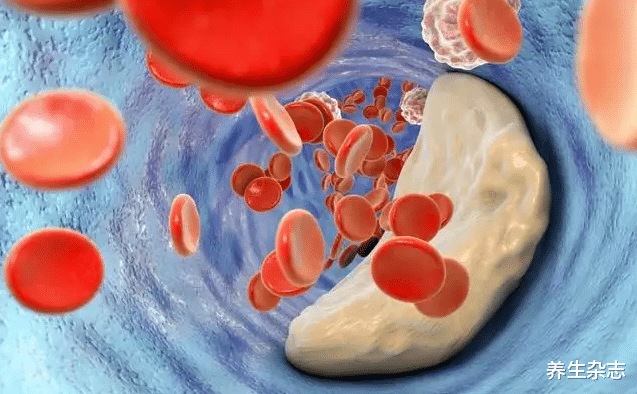In today’s society, people often rely on fast food and takeout to solve their three meals a day, indulging in high-salt, high-sugar, and high-oil foods. Furthermore, long periods of inactivity or lack of exercise lead to abnormal blood lipids and excessive harmful substances.
Among these, an increase in cholesterol levels can damage blood vessels, leading to the formation of plaques and thrombotic substances within the vessels. If left uncontrolled, these plaques and clots will gradually enlarge, causing vessel blockages and adhesions.
This ultimately results in cerebrovascular accidents, coronary heart disease, and other cardiovascular diseases; therefore, controlling blood lipid levels is crucial.
“Whole grains” are recognized as the cholesterol-lowering champions; remember: if you love eating them, your blood vessels will remain unobstructed.
To reduce blood lipids, dietary control is crucial. Some foods rich in cholesterol-lowering nutrients can effectively reduce blood lipids and cholesterol levels. For example, natto, made from fermented soybeans, despite its strange taste that many find hard to accept, its cholesterol-lowering effects are evident among all whole grains.
Due to the high content of nattokinase in natto, it can help dissolve blood clots, as well as eliminate harmful substances and toxic wastes in the blood vessels. It can to some extent clear the vessels, thereby lowering blood lipids.
Therefore, it is recommended that individuals with high blood lipids consume around 30-50g of natto daily, which can effectively lower blood lipids.
What factors lead to abnormal blood lipids?
1. Excessive stress
With the acceleration of life’s pace, people are under much greater stress than before. Long-term stress can lead to internal blockages and nervous tension, both of which are not conducive to lipid metabolism. Therefore, it is suggested that during leisure time, individuals cultivate hobbies they enjoy to relieve stress and bring a sense of relaxation to the body.
2. Prolonged sedentary lifestyle, lack of exercise
Today, people’s routine lifestyle is mainly about eating, drinking, and lying down, with a decreasing interest in physical activity.
However, prolonged inactivity can impose a significant burden on the body’s metabolism, leading to conditions such as obesity and increased cholesterol, subsequently causing thickening and elevation of blood lipids. Hence, it is advised that individuals take a walk after meals to aid digestion and prevent food accumulation, which can burden the body.
3. Improper and irregular diet
If one’s diet is regularly high in sugar, oil, and salt, it can lead to fat accumulation in the body, causing blood thickening and triggering high blood lipids, resulting in damage to the body. Therefore, it is recommended to prioritize vegetables and whole grains in the diet, aiming for a light diet to savor the natural flavors of foods. This approach can relieve stress on various organs, benefiting overall health.
How can blood lipid levels remain stable? Doctors suggest persisting in the following “2 things”:
1. Emphasize dietary supplementation
Abnormal blood lipids not only affect daily life but also cause significant harm to the body. Therefore, balancing blood lipids is crucial. In addition to a balanced diet, the body should also be supplemented with cholesterol-lowering nutrients.
For instance, a combination of over ten natural medicinal ingredients containing Tianmaben powder, cordyceps, ginseng, kudzu root, honeysuckle, cassia seed, and cinnamon – called “Pubei Shuangsuo,” with a small and easily absorbed nutritional structure. Persistent supplementation can not only help the body absorb nutrients but also fundamentally address the issue of excessive cholesterol.
Clinical studies have shown:
Tianmaben kinase in Tianmaben powder can dissolve blood clots and inhibit harmful substances from accumulating within blood vessel walls;
Cordyceps can enhance blood circulation and volume, maintaining normal blood vessel function and condition;
The flavonoids in kudzu root can prevent arterial hardening caused by elevated cholesterol, thus preventing atherosclerosis and easing the burden on various organs.
Hence, individuals with high blood lipids are encouraged to keep “Pubei Shuangsuo” at home and take 2 capsules daily, which can help stabilize blood lipids and alleviate the torment of high blood lipid diseases.
2. Regularly drink green tea
Research has shown that regularly drinking light green tea has certain benefits in reducing blood lipids.
According to the “Journal of the American Dietetic Association,” regular consumption of green tea can decrease the average low-density lipoprotein to 5.3 mg/dl and have effects in dissolving blood clots, clearing blood vessels, and lowering blood lipids.
Tips:
Once abnormal blood lipids are discovered, prompt action should be taken, such as timely treatment, dietary improvements, nutrient supplementation, and participation in physical activities, to prevent potential health risks.


